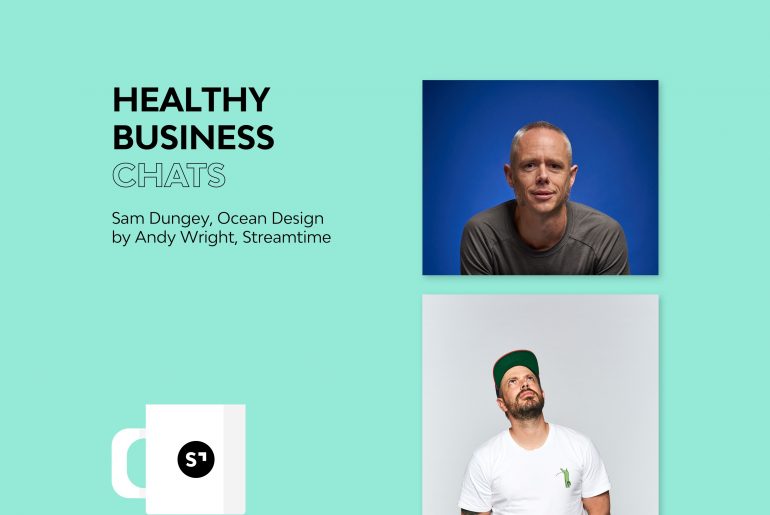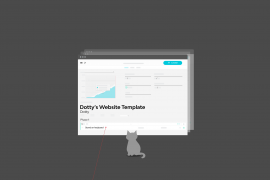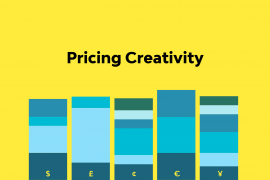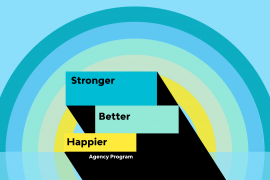“We’ve been setup to cope with this type of (working) situation for a while. I wish we had prepared our clients to do the same.”
Sam Dungey, from Ocean Design was one of Streamtime’s very first customers. He’s been on the full rollercoaster with us. So, a more intimate one on one chat has been on the cards for some time, and right now, we have a bit more time. We connected across the ditch to discuss what’s happening at present, plans to get through it, and to share advice and stories with the Streamtime community.
How’s Coronavirus affecting business right now?
Things are changing rapidly – “Not an immediate impact, a lot of projects are continuing.” – was Sam’s first answer. Just a day later, Sam shared that $230k of future work had just been taken off the table.
One of the biggest impacts has been the ability of clients to do the things that they needed to do. In many case, they haven’t adapted as quickly and easily to remote working as their agency partners. Sam shared that he’d actually been working from home for a number of weeks already. He wishes that he’d used those weeks to prepare and develop processes specifically for the inevitable situation that was round the corner.
In order to meet clients in the middle (or even at the door), Sam and the team adapt to using whatever software their clients are used to. On any given day they have been using Google Meet, Zoom or Microsoft Teams just to keep lines of communication open and projects rolling. While it can be harder during parts of a project like Design Discovery, they’ve found that a mix of Zoom and Jam Board can still deliver good results.
Fortunately, the agency has a mix of clients across different industries. Unsurprisingly, all tourism and hospitality work has stopped. Government clients have re-prioritised, but work is continuing and may eventually ramp up. Other industries have seen more independent responses depending on a number of variables.
How quickly do you think you’ll bounce back?
Sam was quick to reflect back on the financial crisis of 2008-09. While I was hopeful of briefs coming back in fairly quickly as certainty came back into sight, Sam was a little more cautious.
Some of the changes we’re seeing now are probably irreversible. It’s not that things will be worse when we get back out of this. But they will be different.
Interestingly, Sam referred to a trickle down effect from 2008-09. He remembered not really feeling the effect for a couple of years, which is why he’s expecting a slower kick back to the good times.
What have you started doing differently – with your team?
Ocean has always had a very transparent business model. Sam explained that the team knows everything about what is happening. Right now, they have a 4 step guide on what the changing climate might mean for decisions that need to be made in the business. He wouldn’t say whether he was inspired by Jacinda, or if it was in fact the other way round!
The team of course, are concerned about the current situation. With families and commitments it’s hard for anyone to guarantee anything.
What’s interesting about Ocean’s response model though, is that it’s not only about what happens at different stages of things getting worse. It also shows what will happen when things improve. The plan clearly defines the measures that trigger a reversal back up to a previous stage. Mainly, these are linked to improvements in revenue that mean that spending and hiring can begin again.
The plan has been worked through with the team and everyone is clear what everything looks like.
What have you started doing differently – with clients?
The main change with clients is in the way that work is created and presented.
It’s certainly been a bit of an education process over the last month or so, and it’s probably a bit jarring for some who haven’t been used to the technology and practices involved in remote working.
Essentially though, it’s business as usual, but with a different feel.
What have you started doing differently – with finances?
Like any project or professional services based business, cash is king. Sam and Ocean have very little tolerance for people not paying bills on time.
Of course at the moment, money can be tight for purchasers and suppliers alike. But Sam has always been clear that Ocean won’t work with businesses that take the attitude of holding onto their cash and saying “we’ll pay you when we pay you.”
When it comes to non-government clients, some of them have been traditionally poor payers. When that’s the case, the business is very clear that if they want to do work, they must have paid their previous invoice. If the scope of work is for more than $10,000, a 25% deposit must be paid before work starts.
For clients who are traditionally good payers, and have no warning signs, it’s business as usual.
What have you started doing differently – with yourself?
Sam, like many of us, has moved into the spare room. It’s a compromise. After years of loving the home office, sacrifices have been made to accommodate his new co-workers, the family. On the whole though, having worked on and off from home for the last few years, nothing has really changed that much – and it’s nice having a 1 minute commute!
Sam’s other big love is trail running. Unfortunately, the trails in New Zealand are now very crowded so being able to maintain social distancing is technically impossible so the amazing local trails are definitely off the menu.
What have you started doing differently – with your family?
Sam has a wife and 2 daughters who are aged 11 and 13.
As Sam confesses, his wife is a remarkable lady who (while on lockdown) has done an amazing job of maintaining a program for the girls, who are still doing school work and learning.
Sam’s next remark felt like a real pearl of wisdom. He stated how we are living in an historic moment in time.
We should create a diary, a record of how we’re feeling… filled with our thoughts and fears. When our children have children of their own, these will be the stories they can share as an 11 year old during the time of Covid.
What do you use most in Streamtime?
“Pretty much all of it” says Sam. It’s the fundamental centre point for our organisation. All of the team at Ocean use the ToDo screen every day in their stand up. It drives what they have to complete each day and gives visibility to the lead and lag measures.
Explaining this a little further, Sam goes into detail about categorising lead measures as ToDo’s while the lag measures are things like what they need to make (revenue) in the month, and therefore what invoices can be sent out.
What’s been super-cool recently is the development of priorities. “Ooooh, this could be really useful” smiles Sam and is resisting the urge to tell the team how to use it, to see how different workflows develop organically.
If they come up with the idea, they’re more likely to adopt it.
What other tools do you use?
Ocean use the integration with Xero to get the most out of Streamtime as well as the full Adobe Suite and Dropbox.
What’s your best piece of advice for new business?
Sam shares that his best piece of advice is to look for natural fit.
Don’t force a square peg into a round hole. Relationships are much more profitable and fulfilling for both sides if there’s natural fit. If cultural fit isn’t there, don’t do it. Also, if something’s out of your sphere of expertise, don’t do it.
What’s your best piece of advice for managing cashflow?
Sam is razor-sharp when it comes to running the business and finances. “Be aware of critical numbers,” he states. Have them backed up with solid debtor control and supplier expenditure. When managing cashflow, if it’s recoverable, happy days. If it’s a non-recoverable cost to the business, nothing is spent without the team approving it first. Ocean are very transparent with how they manage finances.
The business has 3 targets that determine levels of success; a break-even, a budget target, and a profit share target. Above that figure, there’s a bonus pool for the team which gets shared at the end of the financial year. If the business miss a budget one month, one months profit-share goes back into the business – so that the total profit can be topped back up.
This whole agreement was devised and written up by the team.
What’s your best piece of advice for using Streamtime?
In an instant, Sam says “Follow the webinars.”
He then adds…
Make it work for your team. Go back to what your trying to achieve as a business, understand the flow of Streamtime and lay your business over the top of it.
Of course, this was great to hear. But Sam has been very pragmatic about Streamtime since the beginning.
These tools are there to support amazing people to do amazing work.
Find out more about Sam and Ocean Design here.
If you’d like to learn more about Streamtime why not book a one-on-one chat with us.







